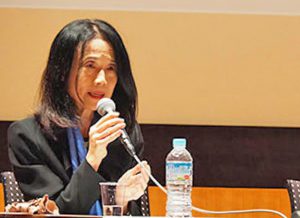Social Progress for What (Whom)?—Reconstruction of the Welfare State—

the 4th Policy Forum of Hitotsubashi University in 30th Fiscal Year of Heisei
Social Progress for What (Whom)?—Reconstruction of the Welfare State—
| Date & Time: | Sunday 11 November 2018, 10:30—18:00 (open from 10:00) |
|---|---|
| Venue: | Hitotsubashi Hall |
| Lecturer: | Marc Fleurbaey (IPSP / Professor, Princeton University) Reiko Gotoh (Professor, Hitotsubashi University) Purnamita Dasgupta (IPSP / Professor, Institute of Economic Growth) Takashi Kurosaki (Professor, Hitotsubashi University) Ono Hiroshi (Professor, Hitotsubashi University Business School) |
| Discussant: | Yukinobu Kitamura (Professor, Hitotsubashi University) Chiaki Moriguchi (Professor, Hitotsubashi University) |
| Hosting Institute: | Hitotsubashi Institute for Advanced Study, Research Center for Global Economics Systems, Hitotsubashi University (HIAS GLECS) |
| Co-Hosting Institutes: | International Panel on Social Progress (IPSP) Institute of Economic Research, Research Center for Normative Economics, Hitotsubashi University |
| Registration: | Please register from here by |
| Free: | Free |
| Language: | English (Simultaneous interpretation is provided in Japanese) |
| Contact: | TEL: 042 – 580 – 8668 Planning Office, Hitotsubashi Institute for Advanced Study, Hitotsubashi University https://glecs.hias.hit-u.ac.jp/contact-us/ |














